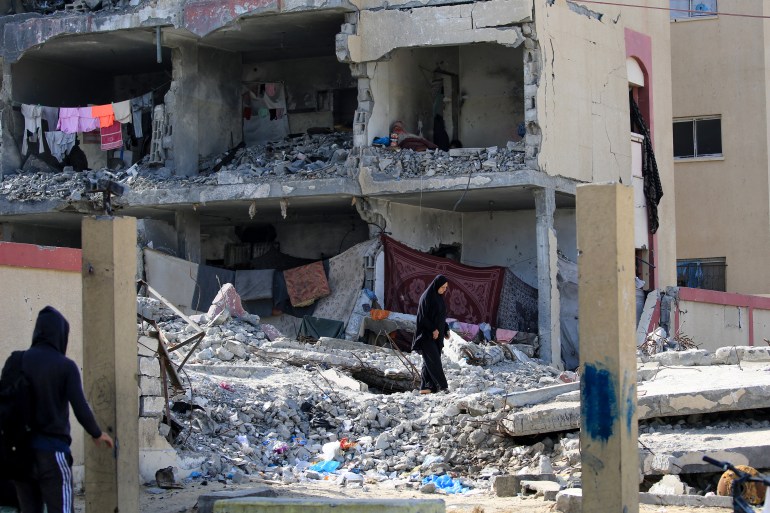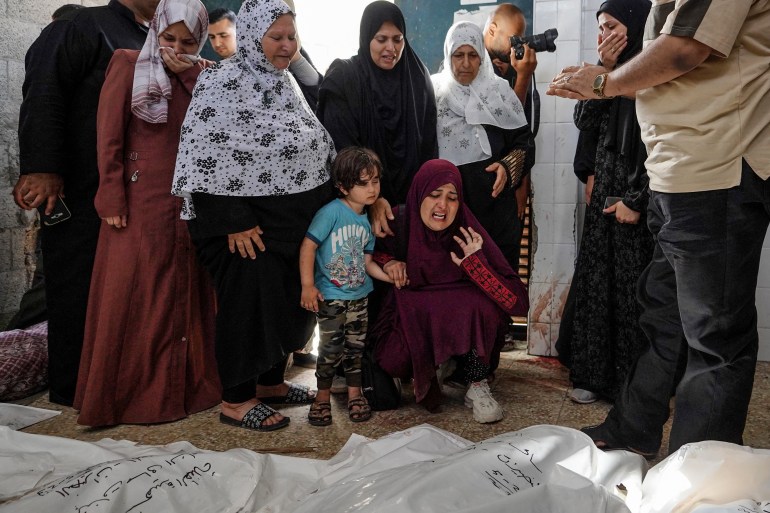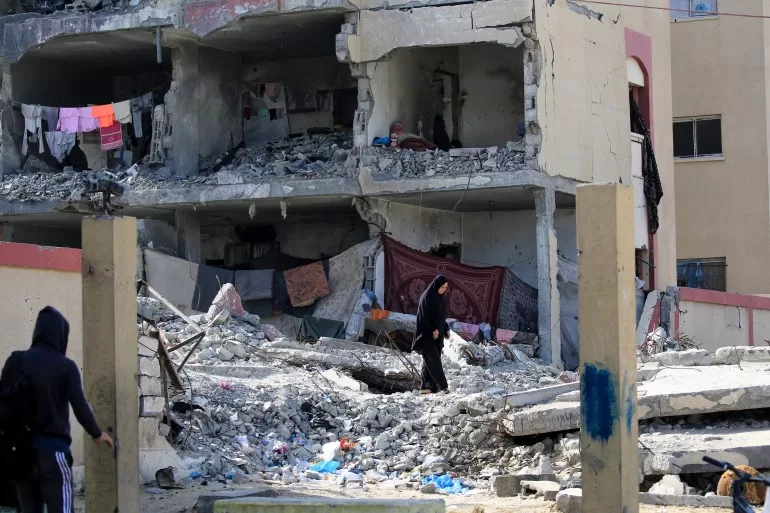Israeli tanks advanced in Rafah’s southeast, edged towards the city’s western district of Yibna and continued to operate in three eastern suburbs, residents said on Thursday.
“The occupation [Israeli forces] is trying to move farther to the west. They are on the edge of Yibna, which is densely populated. They didn’t invade it yet,” one resident told the Reuters news agency, asking not to be named.
“We hear explosions, and we see black smoke coming up from the areas where the army has invaded. It was another very difficult night,” he said.

Simultaneous Israeli assaults on the northern and southern edges of Gaza this month have caused a new exodus of hundreds of thousands of Palestinians fleeing their homes and have cut off the main access routes for aid, raising the risk of famine.
The international community, including Israel’s closest ally, the United States, warned it against launching a ground assault on Rafah without a credible plan to protect civilians. It has been widely criticised for its operations in the city, including from the US, but Israel says it must move in against several battalions of Hamas fighters there.
The United Nations Relief and Works Agency for Palestine Refugees, the main aid agency operating in Gaza, estimated as of Monday that more than 800,000 people had fled Rafah since Israel began targeting the city in early May.
Suze van Meegan, the Norwegian Refugee Council’s emergency response leader in Gaza, said many civilians were still stuck there.
“The city of Rafah is now comprised of three entirely different worlds: the east is an archetypal war zone, the middle is a ghost town, and the west is a congested mass of people living in deplorable conditions,” she said in a statement.
‘Desperation and hunger will spread’
In parallel, Israeli forces stepped up a ground offensive in northern Gaza’s Jabalia refugee camp, where the military has razed several residential areas. It has also struck the nearby town of Beit Hanoon. Israel previously declared major operations over in these areas months ago but says it has had to return to prevent Hamas from regrouping there.
At least 12 Palestinians were killed in an air strike on a store belonging to the welfare ministry east of Deir el-Balah in the central Gaza Strip, Wafa, the official Palestinian news agency, reported.
Gaza’s Civil Defence agency said two predawn air strikes killed 26 people, including 15 children, in Gaza City.
Civil Defence spokesman Mahmud Bassal said one strike hit a family’s house, killing 16 people, in the al-Daraj area and another killed 10 people inside a mosque compound.
A separate Israeli attack on a house in central Gaza’s Nuseirat refugee camp killed eight more people.
A senior security official, Diaa Aldeen Al-Shurafa, was killed in an Israeli strike as he toured residential districts of Gaza City, the Gaza Ministry of Interior said.
Israel has imposed severe restrictions on deliveries of water, food, medicines and fuel, forcing several hospitals across Gaza to shut down.
On Thursday, the Ministry of Health said “minutes” of fuel remained to power generators at Al-Aqsa Martyrs Hospital in Deir el-Balah, adding that the care of 1,300 patients would soon cease.

The UN Office for the Coordination of Humanitarian Affairs has warned “if aid does not begin to enter Gaza in massive quantities, desperation and hunger will spread,” UN spokesman Stephane Dujarric told reporters.
He highlighted the closure of the Rafah crossing and limited functionality of the Karem Abu Salem (Kerem Shalom) crossing in southern Gaza as having “choked off the flow of life-saving supplies”. The UN previously said it cannot distribute food in southern Gaza any more due to the danger.
Dujarric said Gaza’s hospitals lack fuel and medicine because of the continued closure of the Rafah crossing. It has been closed since Israeli forces seized the Palestinian side of the crucial transportation route on May 6.
Meanwhile, the Israeli military said three soldiers were killed in fighting on Wednesday, raising the number of those killed since ground operations in Gaza began on October 20 to 286 soldiers.
More than 35,800 Palestinians have been killed in Israel’s war on Gaza since October 7, according to Palestinian health officials.
